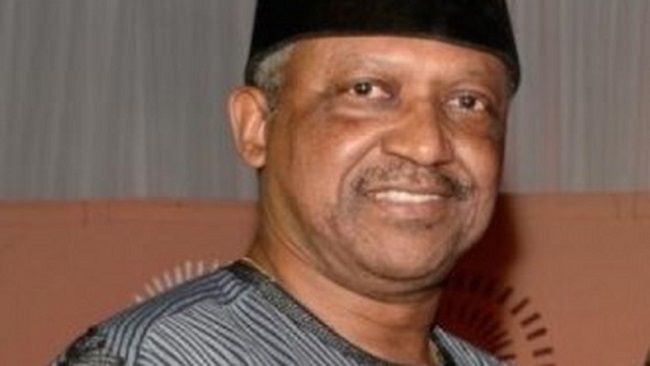With the existing challenges in health sector, the COVID-19 pandemic has greatly affected Nigerian communities.

The Organisation for Economic Co-operation and Development (OECD), an international organisation that works to build better policies for better lives, notes that as the economic and public health crises progressively hit developing countries including Nigeria in the event of COVID-19 pandemic, domestic resources will be strained and external financing will be further solicited.
According to it, it is important that immediate responses to the crisis are put in place and health systems are fortified to build resilience to future shocks if there must be effective response.
Similarly, observers note that Nigerians ought to know that COVID-19 pandemic is still prevalent, although the rate of infection has gone low, it will not be a license to relax preventive and control efforts.
Stakeholders warn that failure to adhere with safety protocols and upgrade responses to the pandemic can be dangerous as Minister of Health Osagie Ehanire, said during the Presidential Task Force on COVID-19 on Oct. 8 in Abuja that Nigeria might record a surge in the number of positive cases.
Ehanire said further: “Nigeria may record a surge in the number of positive cases if response strategies of trace, test, isolate and treat are not scaled up.’’
He, therefore, highlighted the need for increased vigilance by health and port health workers as part of the measure to arrest COVID-19 as a public health challenge in Nigeria.
Sharing similar sentiments, Dr Umar Ahmed, a senior lecturer in the Department of Community Medicine, Ahmadu Bello University, Zaria, observed that factors militating against preventions of the pandemic have yet to be properly addressed at states and local governments’ levels.
He said that the government and other key stakeholders, such as health care professionals in the country, had to ensure that Nigeria would be ready to fight the spread of the pandemic effectively.
Umar, nonetheless, commended the Federal Government for providing policies and funds to enhance and strengthen the health emergency response plan.
“I will not say there were good efforts by states and the local governments to arrest pandemic such as COVID-19.
“Some of the challenges at local government level have to do with funding but at times the local government areas are incapacitated; they don’t do anything, but still many states need to do more,’’ he said.
Umar, who is also Head of Surveillance for Kaduna State Emergency Operation Centre for COVID-19 Pandemic, Zone 1, Zaria, said that each local government across the country is expected to have at least a testing centre.
He expressed concern that several local governments in the country might not have a testing centre which technically implied that detection and control of the pandemic would become difficult.
“Apart from the testing centres, other important issues include the provision of ambulances (if you have an infected person, how will you then transport the person to an isolation centre?)
“The whole of Kaduna State has only five isolation centres which means that if an infection occurs in Lere Local Government of the state, the case has to be transported to Zaria, Kaduna or Kafanchan.
“Most times, even the ambulance to do such transportation would not be there due to one problem or the other, so there are a lot of issues that needs to be tackled,’’ Umar said.
According to him only three ambulances are functional in Zaria Zone 1 which has eight local government areas.
He said that each health facility ought to have a functional ambulance and yet “there are only three functional ambulances in the eight local government areas of the zone.
“By the time you have five to 10 infected persons and you want to evacuate them; how do you do it? This definitely affects whatever you wanted to do,’’.
The don also advocated for training and re-training of health care workers on what to do when they have a suspected case of COVID-19 pandemic, observing that not all health workers in health facilities have such knowledge.
He observed that most of the health facilities have health personnel, stressing that if the current available health workforce could be trained well on COVID-19 pandemic, they could be able to cope.
Umar said that any laboratory technician could be trained on how to conduct sample collections and do the test.
Sharing similar sentiments, Alhaji Sabo-Aminu Anchau, the Chairman of Kubau Local Government Area of Kaduna State, said that inadequate human resource for health was one of the challenges disrupting primary healthcare delivery.
The chairman, however, said that the council would leverage on the state government’s healthcare workers to boost service delivery to enhance health emergency response in the area.
Similarly, Dr. Balkisu Muhammad, President, National Association of Resident Doctors, Ahmadu Bello Teaching Hospital, Zaria, said the pandemic has exposed the weakness of Nigeria’s health system; however, the Federal Government made some strategic efforts to strengthen the system.
She noted that the efforts included provision of Personal Protective Equipment (PPE) and review of the 2020 budget to capture some of the funding gaps that were required for health care in emergency.
She also said that there was training and re-training of health workers in so many secondary health and primary health facilities through the State Emergency Operation Centre for COVID-19 Response.
She advised that states should do more in the provision of PPEs to primary and secondary health care facilities because of the cases that present as COVID-19 cases present as malaria which is common and endemic.
According to her, most of these people will visit either primary or secondary health care facilities before the need for testing and isolation is observed.
Muhammad, therefore, said there was a need for government at local and state level to restock the health primary and secondary health facilities with PPE for effective response.
By Mustapha Adamu Yauri
